ALBUM REVIEW
By Claire Shaffer

The singer-songwriter’s third album is her strongest yet, the sound of a wise, clear-eyed, melodious prodigy coming into her own voice.
Eight years ago when a viral video thrust Maggie Rogers into the spotlight, she quickly went from New York University music student to public figure, garnering the type of cult following where the lines between artist and therapist start to blur. Since then, she has made hard efforts to slow down. “I started to realize that there was this functional misalignment with the work that I had trained to do and the work that I was being asked to perform,” she told The New Yorker, explaining her decision to enroll in Harvard Divinity School
“I was put in this unconventional position without having undergone any of the training.” If strangers were going to look to her for guidance, her thinking went, then the best she could do would be to rise to the occasion.
Her album, Don’t Forget Me, released on the cusp of her earning her postgraduate degree, captures a self-assured songwriter and producer reflecting on her past experiences with clearer eyes. Like the Laurel Canyon scene before her, she’s not so much a prophet on the mount as she is a traveler sharing the lessons she’s learned in nearly 30 years of life.
“Time moves slow/Until one day you wake up and you realize/That what you see is what you know,” she remarks deftly employing the second person. It’s comforting in the same way some of Joni Mitchell’s writing on Hejira is comforting: By acknowledging that she doesn’t have all of the answers, Rogers ends up sounding so wise.
Rogers wrote and even recorded Don’t Forget Me over a whirlwind five days with her producer Ian Fitchuk, whose
cosmic country style blends commercial Nashville songwriting with elements of disco and Fleetwood Mac.
Some of Don’t Forget Me is reminiscent of his past work—lead single “So Sick of Dreaming” especially sounds like a cut off Kacey Musgraves’ Golden Hour, but Rogers carries her own smattering of influences that add nuance to his now-familiar sound. Several elements, like the expansive, effects-laden backdrop on “It Was Coming All Along” and looping drums on “If Now Was Then,” are an uncanny throwback to the Y2K pop-rock that Rogers likely grew up on: your Michelle Branches, your Natalie Imbruglias, your Sixpence None the Richers.
Maggie Rogers’ third album, “Don’t Forget Me,” showcases her evolution as a songwriter and producer. After rising to fame unexpectedly, she continued her studies at Harvard Divinity School to reconcile her public persona with her personal beliefs.
The album reflects her growth, with introspective and yearning lyrics and a sound blending cosmic country with influences from her musical upbringing. With her producer Fitchuk, Rogers crafts a record that’s heavily nostalgic and forward-thinking, reminiscent of Y2K pop-rock yet uniquely her own.
Top Tracks:
Don’t Forget Me, If Now Was Then, So Sick of Dreaming
Recommended if you like: Fleetwood Mac, The 1975, Phoebe Bridgers, Natalie Imbruglias *
24 * FUZZ
Don’t Forget Me
Maggie Rogers


Pop’s Brightest New Hope, Just May Be a Rock Star
After the blockbuster success of her debut, the 20-year-old cranks up the volume and digs deep for its powerful follow-up, “Guts.” Songs are only a fraction of the equation.
Young women in pop face a dizzying array of pressures: to look a certain way, to compete against each other, to be role models, to project acceptable emotions. So it’s notable that Rodrigo has largely opted out. On “Guts,” , she is simply a rock star.
The album’s opener, “All-American Bitch,” begins with Rodrigo over fingerpicked acoustic guitar before snapping into fuzzy power chords and the first of many f-bombs. (She has a true gift for a well-placed expletive.) On “Ballad of a Homeschooled Girl,” she chants a litany of embarrassing party fouls over a springy bass line and lets out cathartic, punchy screams.

There are still piano ballads, poignant ones, exploring the drawbacks of her unusual path, attraction to a gaslighting boyfriend, the challenge of granting forgiveness. The LP’s mix of energy
reflects Rodrigo’s tastes. She loves women who rage, and Rage Against the Machine; songwriters unafraid to bare their intimate fears, and artists who make their politics crystal clear. Her urge to move in a grungier direction took hold as “Sour” was wrapping .
“Brutal,” the last song she wrote for the album with Daniel Nigro, the producer who has become her creative partner, is a punky eye-roll (“I’m not cool and I’m not smart/And I can’t even parallel park”) she turned into her Sour Tour’s opening number.
“It was heavy when we were rehearsing it,” she said of her live band, whose members are all female or nonbinary. “I remember tears in my eyes and being like, this is so powerful. This is what I wanted to see when I was a girl scrolling YouTube when I was 14.” *
By Caryn Ganz
FUZZ * 57
How ‘Good Riddance’ Helped Gracie Abrams Surrender to Change and Lean Into the Present.
There’s a mesmerizing delicacy to Gracie Abrams’ music. Her breathy, graceful vocals hang over sharply insightful songwriting, compelling you to listen just a little more closely. And once Abrams has your attention, she holds it close to her chest.
On her debut album Good Riddance, out Feb. 24, Abrams knits an ornate helix of homesickness and heartbreak. You can feel the lightning of a love that came out of the blue, and almost hear Abrams’ mom on the phone through childhood bedroom walls. Throughout the record, Abrams draws listeners in as she sifts through what ifs and why nots in search of relief.
While her last two EPs — minor (2020) and This Is What It Feels Like (2021) spun bittersweet depictions of half-drunk happy past lovers, Good Riddance confronts her resentment and recklessness. Though the alt-pop album leads with a blurry black-and-white aesthetic, Good Riddance bleeds into the gray areas of right and wrong, of closeness and distance.
“It’s funny when albums come out a year after you’ve written them,” Abrams tells GRAMMY.com. “I feel like so much life has happened since then in a really great way. So it’s almost like talking about it in hindsight now, but I’m desperately excited for it to belong to everyone else.”



72 * FUZZ 01/02 01/16 03/07









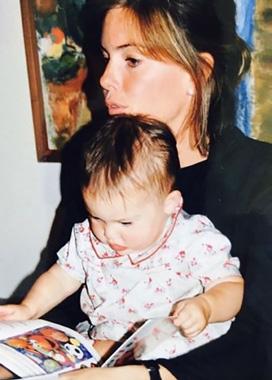
 P. 18
Sabrina Carpenter is the pop star playbook.
P. 87
Harry Styles’ walks a fine line in his recent work.
P. 57
P. 18
Sabrina Carpenter is the pop star playbook.
P. 87
Harry Styles’ walks a fine line in his recent work.
P. 57












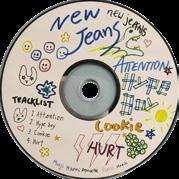
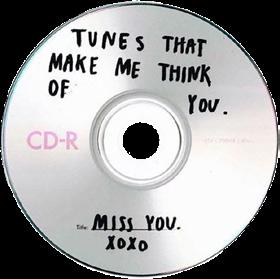
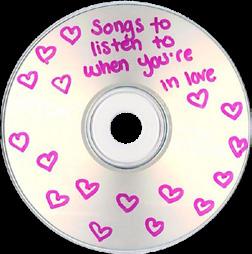
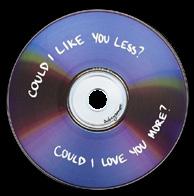 CD/Cassette Boombox with Radio
CD/Cassette Boombox with Radio